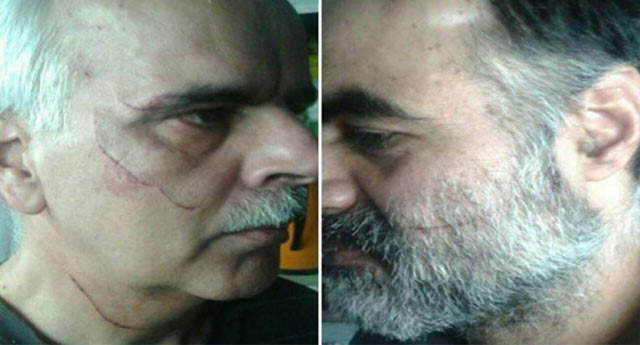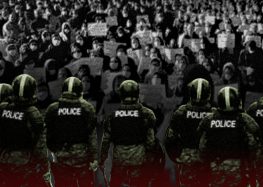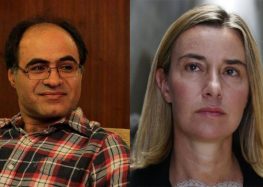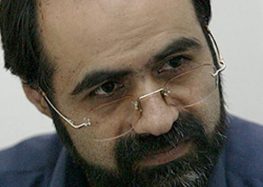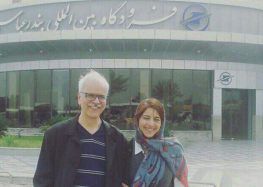Five Prison Inmates on Hunger Strike to Protest Knife Attack against Two Political Prisoners
Prison Officials Refuse to Remove Attackers from Ward
Two political prisoners, Saeed Madani and Saeed Razavi Faghih, were attacked with knives by inmates with whom they are incarcerated at Rajaee Shahr Prison, and prison officials have neither removed the attackers from the ward nor addressed the attack.
Pictures of Madani and Faghih with knife scars on their faces have emerged on Iranian social media.
Both men, along with three other political prisoners, Behzad Arabgol, Kamran Ayazi, and Jafar Eghdami, have been on a wet hunger strike since November 28 to protest the lack of action by the prison authorities to apprehend the attackers.
Saeed Madani’s wife, Mansoureh Ettefagh, told the International Campaign for Human Rights in Iran that her husband and Saeed Razavi Faghih were trying to mediate between a group of political prisoners and two other inmates, who were causing frequent trouble in Section 12 of Ward 4 in Rajaee Shahr Prison, when they were attacked in the face with knives by the two men.
“I did not visit my husband in prison in the three days [after the incident] but we spoke on the phone. He said the hunger strike will not end until the authorities transfer the two trouble-makers to another ward,” Ettefagh told the Campaign.
“Those two trouble-makers are always bothering the other prisoners and causing fights. One of them is also the prison drug dealer. Yet the authorities have not investigated or punished anyone. My husband and the other four prisoners have been forced to go on a hunger strike to get the attention of the authorities. Their lives are in danger and we, the families, are worried.”
Political prisoners routinely receive harsh and punitive treatment in the Iranian prison system. Such treatment frequently includes incarceration among violent and hardened criminals, as well as the denial of critically needed medical care.
Ettefagh told the Campaign that she intends to file an official medical report to document the knife attack.
Saeed Madani, a university professor and an activist with the now-banned Nationalist-Religious Alliance, a nonviolent political opposition group, was arrested on January 7, 2012, and sentenced to six years in prison for “propaganda against the state” and “acting against national security.” In October 2015, the Supreme Court rejected his request for a retrial.
Journalist and former student activist Saeed Razavi Faghih was arrested on March 5, 2014 and spent a year in prison for “propaganda against the state” in connection with the 2009 Green Movement. That movement arose in protest after the widely disputed 2009 presidential election in Iran and the violent state crackdown that followed; anyone associated with the Green Movement is still considered and openly referred to as a “seditionist” in Iran.
At the end of his prison term in March 2015, Razavi Faghih was kept in prison and accused of new charges. In September 2015 he was sentenced to three and a half years in prison for “insulting the Leader and the Assembly of Experts” and “propaganda against the state” in several speeches and articles.

